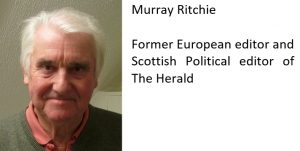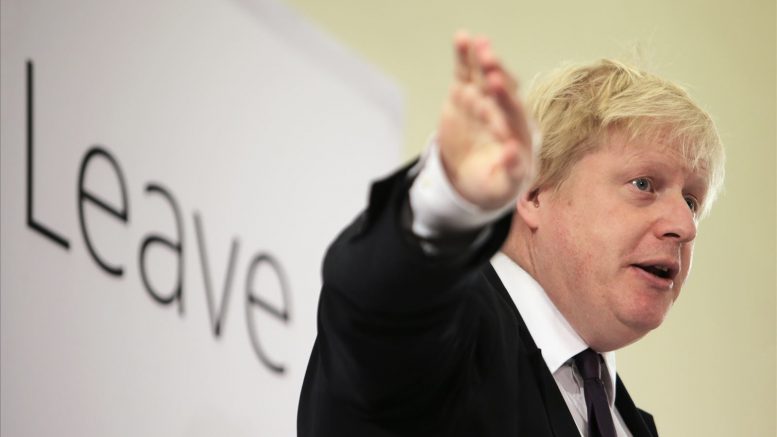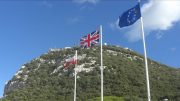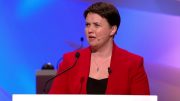The doomsters are having a field day in the troubled United Kingdom. They foresee a conjunction of seismic events, if not now, then shortly. Murray Ritchie poses the question: Are they right?
When Britain was preparing to vote narrowly for Brexit one respected commentator was asked what would happen next. His reply, perhaps only slightly tongue in cheek, went like this: the UK settles for a damaging no deal with the European Union, Scotland secedes, the economy collapses, the Queen dies. And then what, he was asked?
“The End,” he replied.
And all that was before the coronavirus devasted British and world commerce, killing more than half a million people, so far, with Britain suffering proportionately one of the highest number of deaths – close to 46,000 and rising.
Some of the fallout suggests our gloomy seer was being dangerously accurate. Covid 19 has indeed caused havoc and tragedy, a no-deal fallout between Britain and the EU looks a distinct possibility, there is no argument about the current economic crisis being the worst ever.
Only the Queen carries on serenely as she continues to reign supreme from her favourite bolthole at Balmoral in Scotland. The same Scotland that has never been so much in favour of independence as it is now, according to recent polling. The same Queen who warned Scots to “think carefully” in the 2014 referendum and who was accused of unconstitutionally poking her nose into politics. Perhaps she is at an age where she no longer cares quite so much for the niceties.
The British Tories’ eternal Scottish problem prompted prime minister Boris Johnson to travel north across the border recently – that’s the border which he says, inexplicably, doesn’t exist – to argue in favour of the Union. This was his first trip to Scotland as prime minister – he has been in office for just over a year – suggesting his interest in England’s restless northern neighbour has not been top of his agenda. Recent polling suggests a touch of panic in the prime minister and self-appointed minister for the Union.
Tories in England are horrified at two recent polls in Scotland showing 54 per cent for independence – an almost exact reversal of the 2014 referendum.
He travelled rather frantically to convince the Scots that the might of the UK had saved them from the huge costs of the virus. Predictably, he used two of his favourite props to back his case: fishing and fighter jets.
Fish, because fisheries is the most emotive of the Brexit disagreements, and he was keen to show his support for the Scottish sector which takes 70 per cent of the British catch. And fighter jets which are based in Scotland and proudly proclaim their protection for British identity amid fluttering Union flags.
What can we say? Only that his trip didn’t work out well. Johnson has little to be proud of in his battle with Covid – and the Scots know it. Like his critics in England they tend to compare him with his friend, American President Donald Trump, and with some of the most autocratic governments with poor Covid records and a reputation for incompetence.
As ever he boasted how the UK – by which he means his government in London – funded Scotland’s fight against the virus. It is true, of course, that the money comes from the Treasury in London as it does across the UK. Not so convincing is the fact, not lost on the Scots, that most of the money is borrowed and must be paid back.
As one disenchanted Scottish voter said in a television interview: “What is the point of us paying our share of taxes to London only to have London send it back again and ask us to be grateful? Why not cut out the middle man?”
Of course it is a bit more complicated than that but what is plain is that Johnson’s arguments no longer wash in Scotland or the UK’s other devolved nations. Those days are gone. Tories in England are horrified at two recent polls in Scotland showing 54 per cent for independence – an almost exact reversal of the 2014 referendum.
Nicola Sturgeon, Scotland’s popular first minister, is now 99 points ahead of Johnson in her net approval rating for how she handled the pandemic, an astonishing difference not seen on this scale since the 1980s when Thatcherism was devastating Scottish heavy industry.
How on earth can a no-deal Brexit or even any agreement of any sort ever bring the two sides back together when other polls are showing how much the Scots wish to return to the EU – now more than the 62 per cent who voted to remain in 2016.
The mood music is in tune with two extremes in UK politics – the loss of respect for, and confidence in, the British prime minister, and the soaring popularity of Ms Sturgeon whose biggest problem after Covid is containing the impatience of some in the ‘Yes’ movement to launch the formal campaign for Indyref2.
Johnson’s refusal even to consider allowing it, with the support of the new Labour leader, Sir Keir Starmer, is putting pressure on both Johnson and Sturgeon. But only Ms Sturgeon knows how to feed off such pressure.
How long Johnson’s refusal can be sustained is anyone’s guess. Holyrood elections are coming next year when an SNP majority is expected despite an electoral system deliberately loaded by the Unionist parties against the Nationalists when devolution was introduced more than 20 years ago. Sturgeon believes SNP success in that election is the point where the democratic process can no longer be denied.
‘What is the point of us paying our share of taxes to London only to have London send it back again and ask us to be grateful? Why not cut out the middle man?’
Loss of respect for political leaders is a world phenomenon of late. Scotland seems to be something of an exception. Even Tories in England are already talking of giving Johnson just two years in the job.
Enoch Powell’s dictum that all political careers end in failure has been proved true in recent times. Think of David Cameron losing the EU referendum and resigning. And Alex Salmond doing the same after losing the Scottish independence referendum. Think Corbyn. And soon, maybe, think Trump. Such failures have consequences long after their time.
Nicola Sturgeon turned 50 a few days ago. She admitted to sometimes pondering her future after her years as first minister. But she also pointedly reminded us she is a politician to her bootstraps. She will want to prove the Powell theory wrong and to be remembered as the politician who took Scotland to independence. Being just another Scottish romantic failure is not for her.
A conjunction of dreadful events can indeed herald a political apocalypse – and probably will in our troubled United Kingdom. But the canny Ms Sturgeon knows that, even in times of unprecedented chaos, there is always someone somewhere who stands to benefit.

Headline Photo Credit: Stuart Boulton/Shutterstock.com




